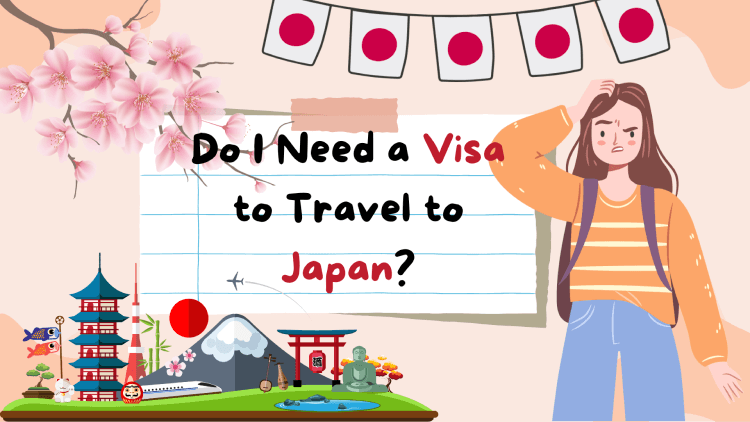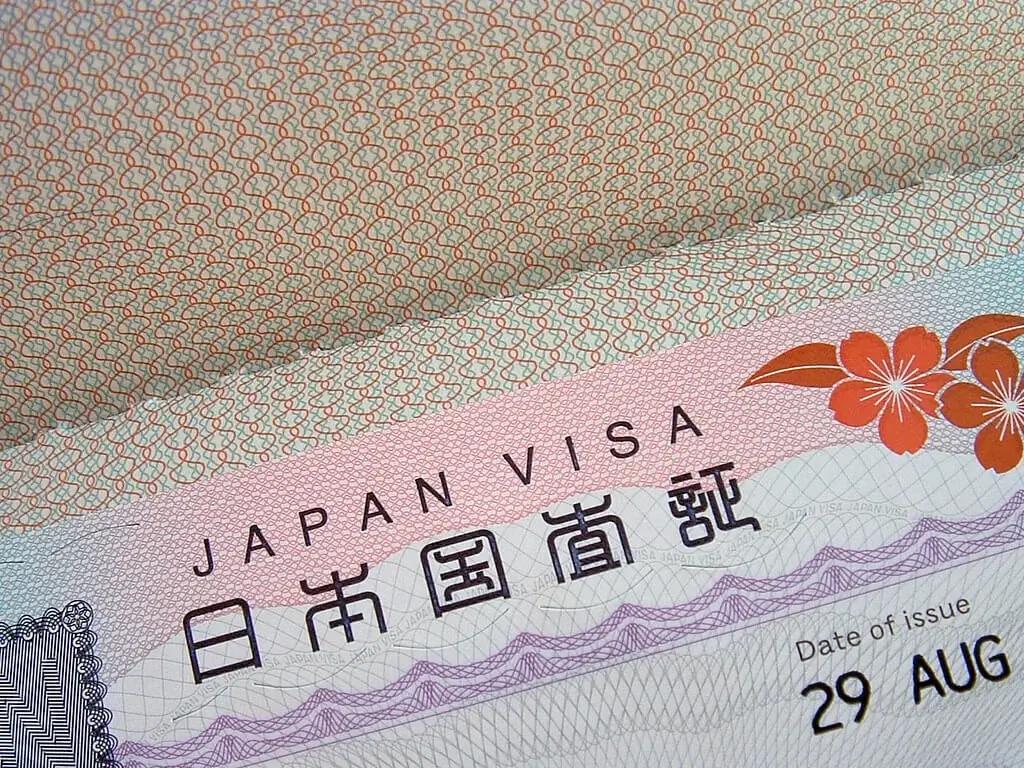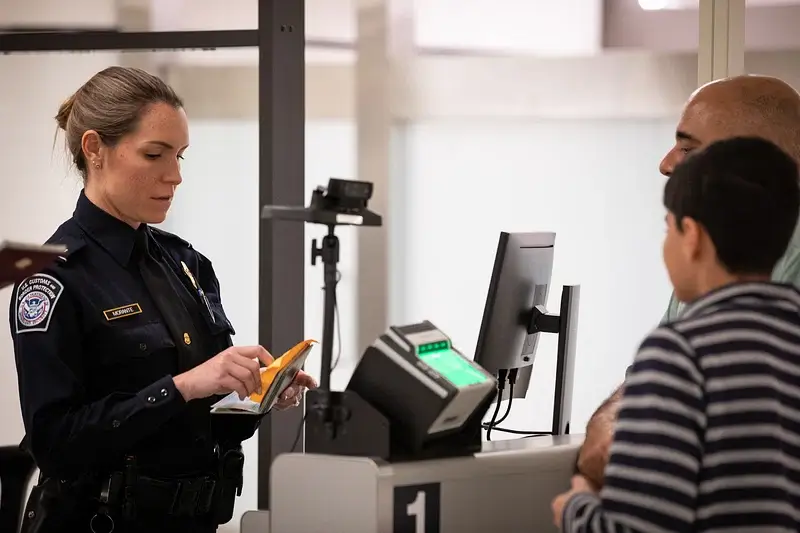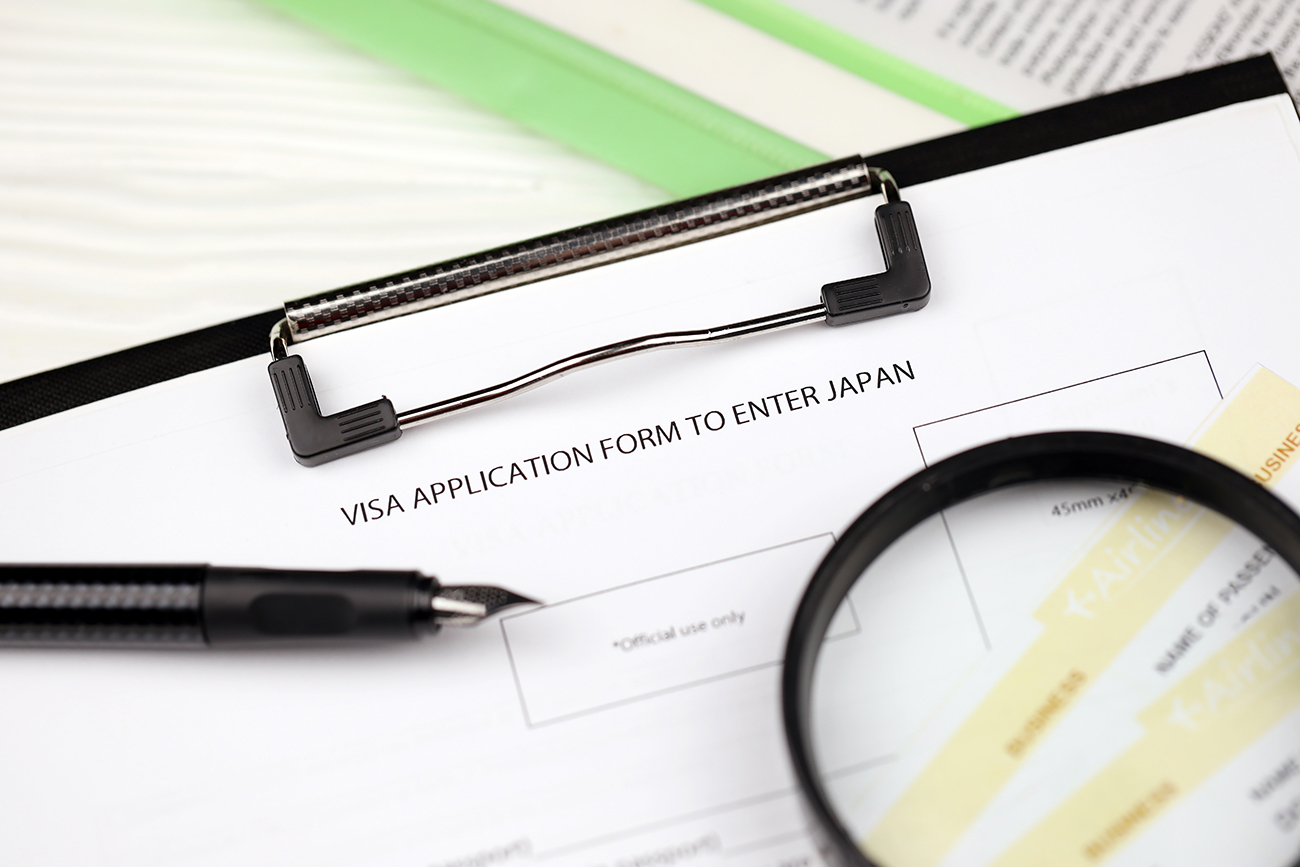Before you dig out your passport and pack your bags, though, it's essential that you know whether you'll need a visa to be able to enter Japan.
Look no further than this guide! We'll guide you through, help you find out what you need, and take some of the stress out of travel planning.
By the way, don’t forget to bring an iRoamly Japan travel eSIM to stay connected – it’s a reliable way to access maps, book tickets, and more!

Do I Need a Visa for Japan?
Whether you need a visa to visit Japan or not largely depends on your nationality. Japan has reciprocal visa arrangements with many countries allowing short visits (usually 90 days or less) for tourism, business, or visiting family without a visa being required to be obtained in advance.
Citizens of some countries, such as the US and most European nationals, along with visitors from Canada and Australia, do not need a visa to visit Japan for short stays.
You can find the list of countries that arevisa-exempt here: https://www.mofa.go.jp/j_info/visit/visa/short/novisa.html

However, if you're planning to live, work, study, or undertake any activities outside the scope of being a tourist visitor, it may be that you need to apply for a different type of Japan visa.
Citizens of countries not covered by Japan's visa waiver agreement are required to apply for a visa before entering the country, so be sure to read up if you fall into that category.
How to Check if You're Visa-Exempt
To confirm whether you need a visa to visit Japan or not, visit the official website of the nearest Japanese embassy, consulate or diplomatic mission to you. They will have the most recent list of countries for which a visa exemption applies.
1. If You're Visiting Japan for Tourism, Business, or Family Visits for 90 Days or Less
For many countries/regions, to go on a short trip to Japan for travel, business meetings, visiting your friends or family, and stay in Japan for 90 days or less, you DO NOT need to obtain a visa. As long as you are NOT engaged in paid activities in Japan.
However, individuals with citizenship from these countries and/or living in these countries are required an entry visa for short-term purposes: Philippines, Vietnam, China, Russia and other countries.
You can apply for a single-entry visa online if you are in the following categories, and you meet the appropriate qualifications. To view the list of countries that require a visa, visit Japan's official website: https://www.mofa.go.jp/mofaj/toko/visa/tanki/other_visa.html
The period of stay granted at the time of the landing permission will be "15 days" for Indonesia and Thailand, “14 days” for Brunei, "30 days" for United Arab Emirates and Qatar, and "90 days" for other countries and regions.
Chinese residents of Hong Kong do not need a visa if they are entering as tourists and are carrying a Special Administrative Region (SAR) passport issued by the Hong Kong Special Administrative Region of the People's Republic of China or a British National (Overseas) (BNO) passport.
2. If You're Planning to Work or Stay in Japan for More Than 90 Days
If you wish to work in Japan or stay longer than the 90 days allowed for tourism or business, you’re required to apply for a visa before you enter Japan.
For the vast majority of people, this process starts by getting a Certificate of Eligibility from the Immigration Services Agency of Japan. After you receive your Certificate of Eligibility, you can apply for a visa at a Japanese embassy or consulate closest to you. This includes anyone planning to work, study, or pursue other long-term purposes in Japan.
Reference: https://www.mofa.go.jp/mofaj/toko/visa/index.html
3. For U.S. Citizens
For U.S. citizens, there are two situations:
No visa required:
Short-term stays of less than 90 days;
Transit, tourism, excluding paid business activities, meetings, or study purposes.
Visa required:
For those planning to stay in Japan for over 90 days and already have a COE (Certificate of Eligibility);
Media-related activities;
Attending as a witness;
Diplomatic/official delegations or transit;
Reference: https://www.us.emb-japan.go.jp/itpr_en/travel_and_visa.html#whoneedsvisa%EF%BC%8C
The embassy does not accept applications from U.S. B-1 and B-2 visa holders, and that includes online applications.
For U.S. Military Members
Military personnel and families stationed in Japan under the U.S. Status of Forces Agreement (SOFA) should contact their chain of command for specific information. The Foreign Clearance Guide will provide specific procedures.
Follow the U.S. Embassy in Japan for the latest updates on entry requirements.
Twitter: @ACSTokyo
Facebook: @ACSTokyo
U.S. citizens should enroll in the STEP program for alerts and consular assistance while abroad.
For the most current information, always check with the Japanese Embassy or Consulate before planning your trip: https://www.mofa.go.jp/about/emb_cons/over/index.html
4. If You Hold a Diplomatic or Official Passport
Diplomatic or official passport holders are subject to special visa exemptions while traveling to Japan. For official or diplomatic reasons, if you are travelling from a country having a reciprocal visa exemption arrangement with Japan, then you may be exempted from the visa.
For more information, visit the Ministry of Foreign Affairs website for Japan and the list of countries eligible: https://www.mofa.go.jp/ca/fna/page22e_000692.html
How to Apply for Japan's eVISA?
Japan offers an eVISA system for citizens from certain countries who wish to apply for a short-term stay visa online. Here's a simple guide on how it works:
Official Website: https://www.mofa.go.jp/mofaj/toko/visa/tanki/visaonline.html
You can apply here: https://www.evisa.mofa.go.jp/index
1. Who Can Apply for Japan's eVISA?
As of November 11, 2024, nationals residing in the following countries and regions can apply for an eVISA:
United Kingdom
Australia
Canada
Cambodia
Saudi Arabia
Singapore
Taiwan
Brazil
United States
South Africa
Please note that only holders of ordinary passports are eligible to use the JAPAN eVISA website.
2. Special Cases: Countries That Need to Apply Through Agencies
If you are a national of the following countries you must apply through the designated agency and not through the eVISA website directly:
China: Chinese citizens living in China need to apply through an agency.
Vietnam: Vietnamese citizens residing in Vietnam who are part of a tour organized by a designated travel agency.
United Arab Emirates, India, Indonesia, South Korea, Hong Kong, Macau, Mongolia: Citizens from these countries (except South Korea under the jurisdiction of the Consulate-General of Japan in Jeju) must apply through an agency.
Transport: With eVISA you may only apply if you are traveling by air or sea. The sea routes must be passenger ferry vessels via an international sea port of entry. Currently only accepting international passenger ferry vessels from Busan, South Korea and Shanghai, China.
Visa Duration: A short-term visa allows the holder to go no longer than 90 days in three months from the entry date, although some consulates will only issue visas with a maximum of 15 or 30 days for countries such as China.
General Visa Application Requirements
General Japan visa application requirements are prerequisites that you will need to fulfil regardless of the type of visa you are applying for. These are usually relatively straightforward – a passport, proof of return travel, and occasionally proof of funds to support yourself while in Japan, etc.
Where you may need certain items can depend on where you are applying from too, so the best option is to check with your local Japanese embassy or consulate to be certain you are not missing anything.
1. Can I Extend My Temporary Visa?
Nationals from countries Austria, Germany, Ireland, Liechtenstein, Mexico, Switzerland, and the United Kingdom may be granted an extension of stay for 90 days at the time of landing. The extension of stay may be granted only once. If you wish to apply for an extension, you need to go to one of the regional immigration bureaus in Japan before your current period of stay expires. The extension fee is 4,000 yen.
For those of other nationalities, it is almost impossible to extend a visa unless you have a relative or key business contact in Japan who is willing to be your legal guarantor.
2. Can I Apply for an Online Visa?
Visitors from the following countries/regions can now apply for an online visa according to the Ministry of Foreign Affairs of Japan: Australia, Brazil, Cambodia, Canada, Saudi Arabia, Singapore, South Africa, Taiwan, the United Kingdom, and the United States.
Entering Japan: What to Expect

Upon arrival in Japan, all travelers go through customs and immigration.
If you're arriving from a visa-free country, the process will be quicker for you, and you'll typically just need to show your passport and complete an entry card. Travelers from non-exempt countries are required to show their visa along with the entry card.
You may be briefly questioned by an immigration officer about your reasons for visiting.
Important Notes for Visa-Free Entry to Japan
A Valid Passport & Return Ticket: Each traveler must possess a valid passport and a return or onward ticket.
Duration of Stay: Visa-free stays are typically limited to a maximum of 90 days, depending on the country of origin. Extensions are not typically available.
You Can't Work: Visa exemption applies for tourism, discussing business, or short term visits. You are not allowed to work.
Proof of Accommodation: You might be asked to provide information about your accommodations such as hotel name and address.

Availability of Funds: At your port of entry, Immigration Officers want to know that you have funds available.
Customs & Prohibited Items: Make certain everything you brought will not break any Japanese laws. More info: https://www.mhlw.go.jp/english/policy/health-medical/pharmaceuticals/01.html.
Digital Declaration Form: Get information about your accommodations now and fill out the digital declaration form before arriving for a more efficient entry at https://www.customs.go.jp/english/passenger/declaration/declaration_app.html.
Health & Safety Regulations: Check if there are any health recommendations in place, such as vaccination or quarantine.
FAQ
1. Do I need a visa to go to Japan from the US?
No, US citizens do not require a visa for trips of up to 90 days for tourism or business.
2. What do I need to travel to Japan?
A valid passport, a return ticket, and, depending on your visa, proof of funds to support your stay.
3. How much is a Japan visa?
Costs vary based on visa type and nationality. For a single-entry tourist visa, you’ll generally pay around $25, though fees can be as low as $8 or as high as $50.
4. What is the Smart Traveler Enrollment Program (STEP)?
The Smart Traveler Enrollment Program (STEP) allows you to register your trip with the nearest U.S. embassy or consulate. This way, you can receive essential travel information, security updates, and help in an emergency. It also helps the embassy reach you in the event of a crisis, disaster, or other emergency while you're out of the country.
Conclusion
Determining whether or not you need a visa to visit Japan is simple enough if you know the right places to look.
Of course, the most definitive and up-to-date visa advice can always be found on the site of your nearest Japanese embassy or consulate. Be sure to verify all requirements and procedures as part of your travel plans.
Enjoy your trip to Japan, a stunning and culturally fascinating country!
